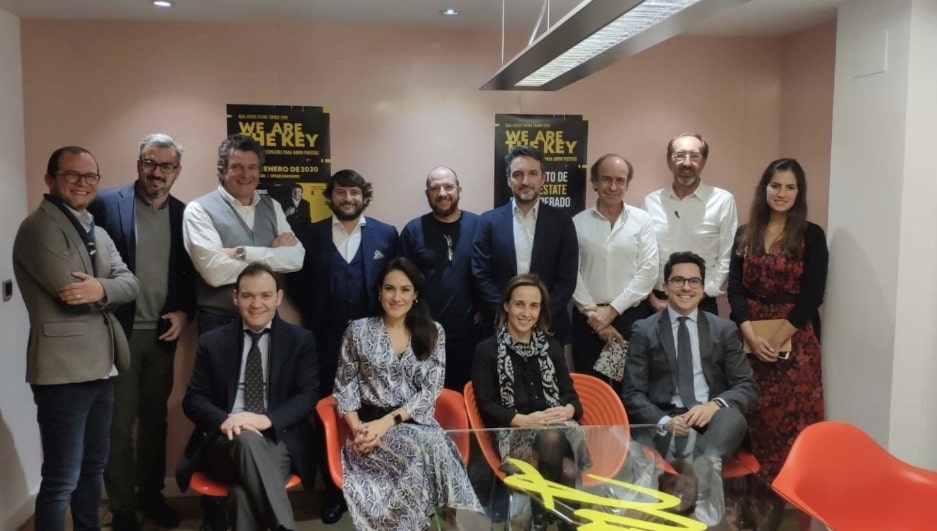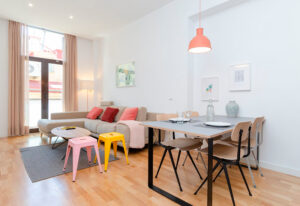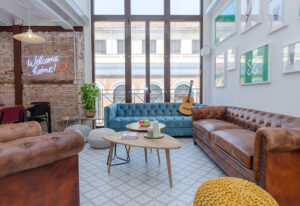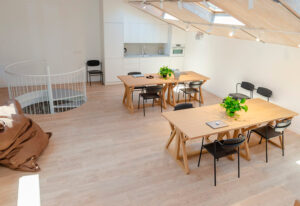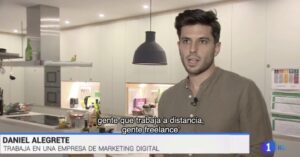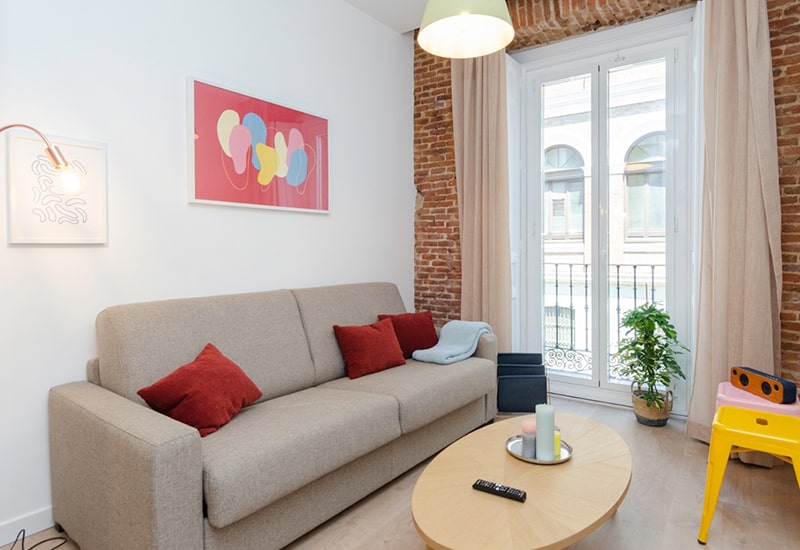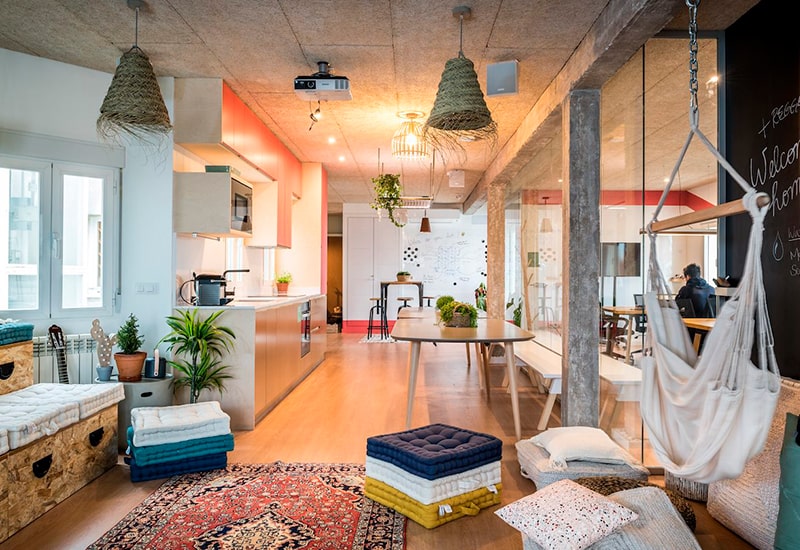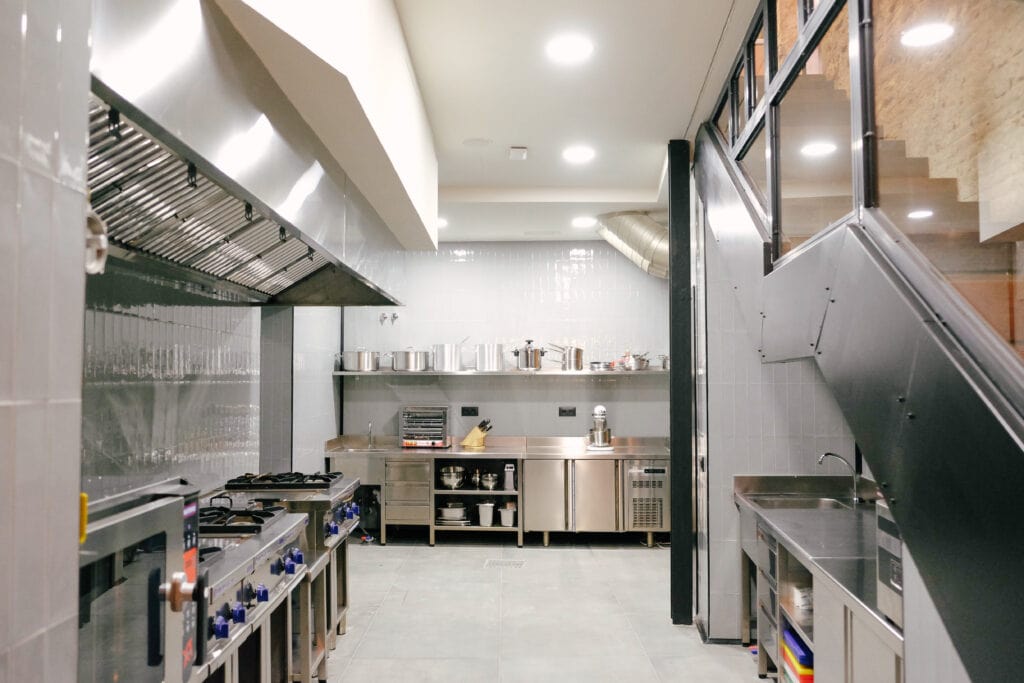Informe sobre la experiencia Coliving 2019
La misión de Urban Campus es cambiar la forma en que las personas viven, trabajan e interactúan en las ciudades.
Creamos espacios cálidos, íntimos y con un diseño óptimo, para concebir una sensación de hogar y crear una comunidad comprometida. Esto da a nuestros residentes un sentido de conexión, pertenencia y significado. Nuestro objetivo es cultivar el entorno perfecto para que nuestros miembros crezcan juntos y superen sus límites, con el fin de alcanzar sus objetivos personales o profesionales.
Un año después de lanzar nuestro primer Coliving, (y ahora con 2 residencias coliving en Madrid) queríamos entender cómo hemos impactado en la vida de nuestros residentes y evaluar si estamos en el camino correcto para lograr nuestra misión.
Más allá de eso, queríamos conocer un poco más a nuestros miembros, para tener una idea más clara de quiénes viven entre nuestras paredes y participan de nuestra maravillosa comunidad coliving.
Ya en diciembre de 2019 realizamos una investigación profunda, sobre nuestra comunidad de profesionales y emprendedores, para obtener conocimientos relacionados con:
- Su experiencia como residentes de Urban Campus
- Cómo les ha impactado esta forma de vivir
- Su percepción de Urban Campus
- Sus antecedentes personales y profesionales
Estamos encantados y emocionados de desvelar algunos de los resultados realmente interesantes en este Informe de Experiencia Coliving.
¿Quiénes son nuestros residentes?
Descubrimos que tenemos una comunidad muy internacional, con residentes procedentes de más de 27 países.
Con una demografía tan global, nos preguntamos cuántos idiomas se hablan en la comunidad, y nos sorprendió descubrir que el 64% habla más de 2 idiomas. (Además de su lengua materna).
También descubrimos que un tercio ha vivido en más de 3 países. Podemos afirmar que nuestros residentes son de mente abierta y les encanta viajar y conocer nuevas culturas.
Algunas personas podrían pensar que este estilo de vida sólo se adapta a los jóvenes, pero el 4% de nuestros residentes tienen más de 40 años, con una edad media de 31 años. El 17% son menores de 26 años y son jóvenes profesionales, no estudiantes.
La presencia de un rango de edad tan amplio en nuestros espacios demuestra que, independientemente de la edad, ¡el coliving puede ser una buena opción!
¿Preguntas por tu vida profesional? El 72% de nuestros miembros utilizan nuestros espacios de coworking como su oficina principal o secundaria. El 58% de nuestros miembros son empleados de una empresa, mientras que el 42% son emprendedores o autónomos, y el 38% de ellos tienen actualmente un empleo.
También nos interesaba saber dónde vivían nuestros residentes antes de trasladarse a nuestros colivings de Urban Campus. Las respuestas fueron muy heterogéneas, ya que los miembros han vivido con sus familias, solos, en un piso compartido, con sus parejas, etc. Entonces, ¿cómo es que tantas personas con diferentes situaciones de vida previas deciden mudarse a un coliving? La respuesta se encuentra en nuestros valores; el 91% nos eligió por nuestra increíble comunidad.
¿Cuál ha sido tu experiencia y cómo ha cambiado tu vida?
La comunidad es una parte muy importante de nuestros colivings. Después de mudarse, el 75% de nuestros miembros consideran que lo que más les gusta de nosotros es nuestra comunidad y las actividades de networking. Además, nos enorgullece decir que el 85% se siente menos solo viviendo aquí.
El 88% se siente apoyado socialmente y parte de la comunidad. El 85% asiste al menos a un evento de Urban Campus al mes. Esto es sin duda gracias a nuestros increíbles promotores comunitarios, de los que estamos realmente orgullosos.
Nuestros residentes han conocido una media de 7,5 personas a las que pueden llamar amigos.
¡Quizás por eso 8/10 de ellos son más felices ahora que antes de llegar a nuestro coliving!
El 95% nos recomendaría a un amigo, lo que demuestra que este modo de vida realmente cubre las necesidades de hoy en día.
¡Además, podemos decir con orgullo que hemos recibido una puntuación media de 8,5!
Después de revisar estos datos, creemos que estamos en el camino correcto para lograr nuestra misión. Seguimos fomentando el crecimiento de nuestros miembros, aprendiendo de ellos y continuando el impacto en las personas que eligen vivir con nosotros. ¿Qué opinas?
Para explorar más de nuestros puntos de vista, revisa y descarga el informe infográfico completo proporcionándonos tu correo electrónico.
[email-download download_id=”6469” contact_form_id=”6468”]
